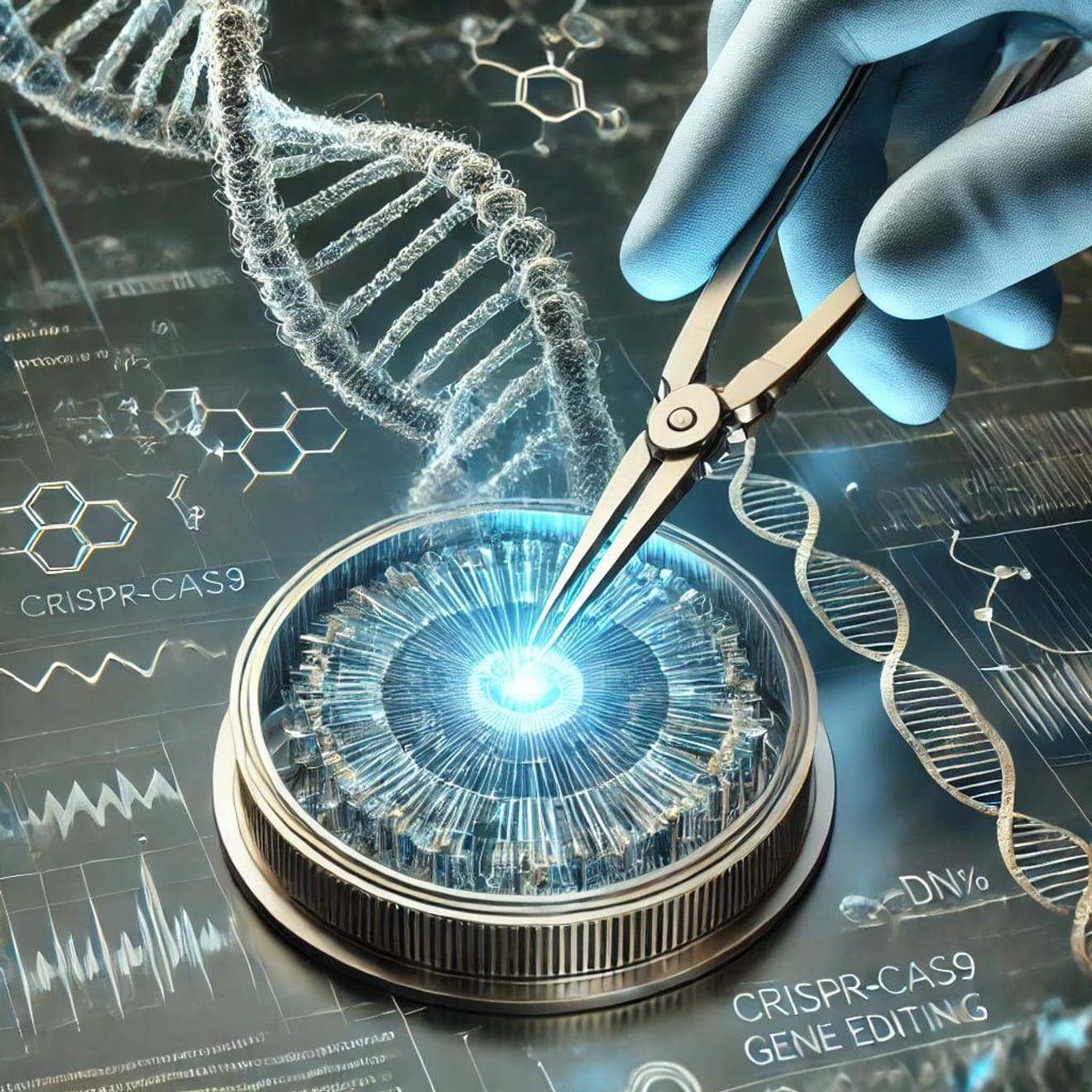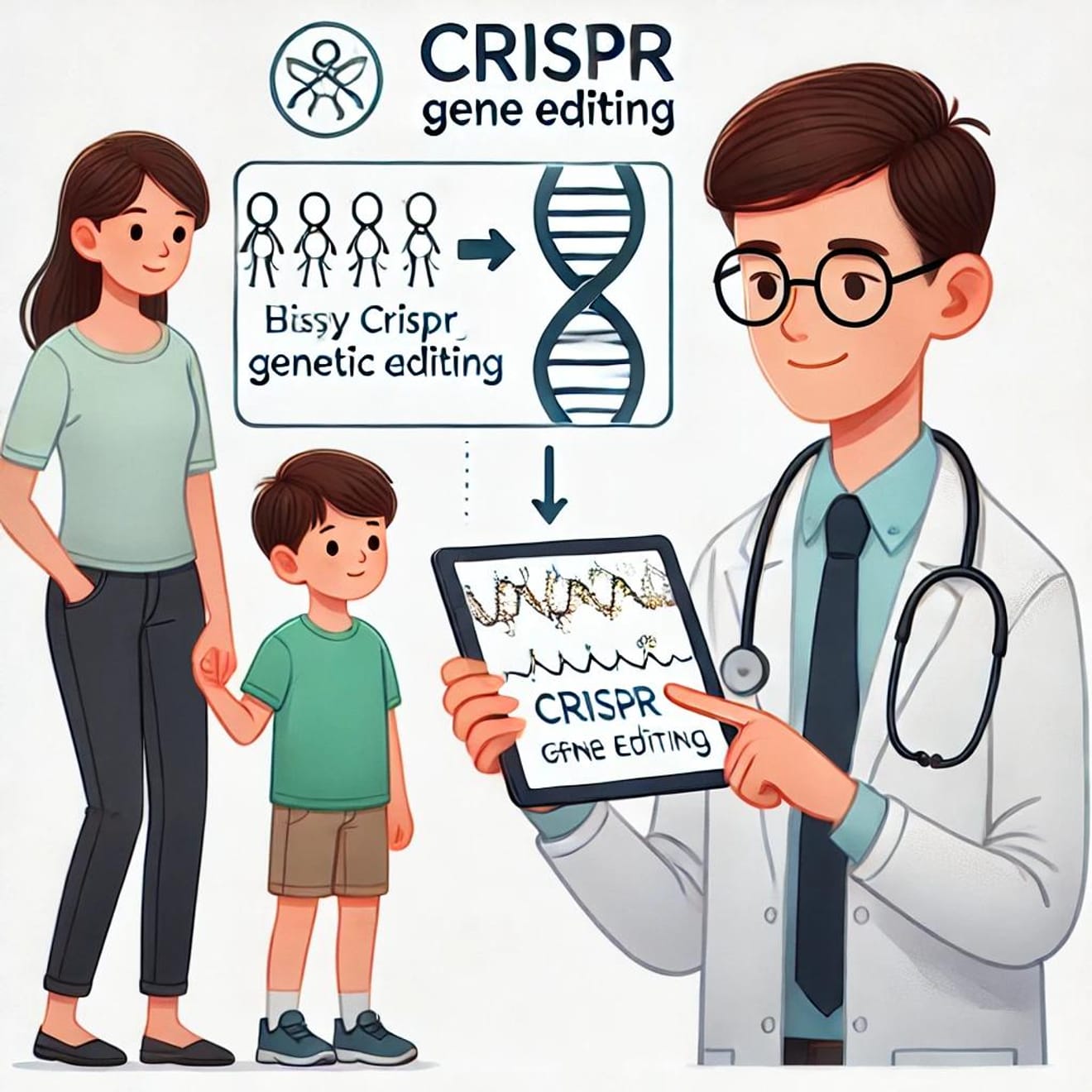Gene editing technology has recently become a significant innovation in life science, and among them, CRISPR-Cas9 technology holds a unique position in terms of its potential and influence. CRISPR technology is bringing revolutionary changes to disease prevention and treatment through gene correction, and we are now entering a new era where we can fundamentally solve genetic diseases. This article will discuss how CRISPR technology is leading to innovations in personalized treatment and prevention.

1. Basic Concept of CRISPR Technology
CRISPR-Cas9 is a technology derived from a gene defense system originally found in bacteria, and it has the ability to accurately cut and edit specific DNA. CRISPR stands for Clustered Regularly Interspaced Short Palindromic Repeats, and it can be used to selectively modify parts of a gene sequence. Cas9 is the enzyme that cuts DNA in this CRISPR system.
This technology enables gene editing due to its accuracy and efficiency, making the precise gene modification that was once only a dream a reality. In particular, CRISPR technology is useful for modifying the genes of living organisms in real time and removing or replacing genes that cause diseases.
2. Application of CRISPR for Personalized Treatment
CRISPR technology has tremendous potential in the field of personalized treatment. Providing treatment based on each individual's genetic information is the core of precision medicine. Using CRISPR, diseases caused by an individual's genes can be accurately corrected, and personalized treatments can be provided.
2.1 Treatment of Genetic Diseases
One of the biggest applications of CRISPR is the treatment of genetic diseases. Many diseases are caused by genetic defects, and CRISPR can accurately correct these defects. For example, genetic diseases such as cystic fibrosis, hemophilia, and muscular dystrophy could be treated by using CRISPR to correct the relevant genes.
Thanks to the accuracy of CRISPR gene editing, it can precisely correct the desired genetic information, providing a fundamental treatment method for diseases that existing treatments have not been able to solve. It is expected that the treatment of genetic diseases using CRISPR technology will become commonplace in the future.
2.2 Cancer Treatment
Cancer is also one of the diseases where CRISPR technology can play an important role. CRISPR can be used to correct gene mutations in cancer cells and suppress the growth of cancer cells. For example, it can suggest a method of preventing cancer progression by editing specific genes expressed in cancer cells.
In addition, methods of enhancing immune responses to cancer by modifying immune cells are also being studied. By manipulating immune cells at the genetic level using CRISPR, cancer cells can be accurately targeted and effective treatment can be provided.

3. Disease Prevention through CRISPR Technology
CRISPR can also play an important role in disease prevention. By using CRISPR to correct a specific gene that causes disease in advance, it is possible to prevent the occurrence of disease.
3.1 Gene-Based Prevention
Generally, disease prevention is achieved through lifestyle or medication, but CRISPR makes gene-based prevention possible. For example, diseases such as Alzheimer's disease and heart disease are greatly influenced by genetic factors. By using CRISPR to correct these genetic risk factors in advance, it is possible to prevent disease.
In particular, CRISPR can play a major role in preventing hereditary diseases. For example, it is possible to fundamentally prevent the occurrence of diseases in future generations by blocking the path by which a specific disease is genetically transmitted and correcting it.
3.2 Sustainable Health Management
CRISPR also enables sustainable health management. By manipulating genetic information in a way that helps to select healthy genes and maintain health, the health of future generations can be improved. This can act as a method of improving the human gene pool and maintaining health, going beyond simply preventing diseases.
4. The Future of CRISPR Technology
CRISPR technology is currently being actively researched in various fields, and its possibilities are endless. In particular, it will cause major changes in the fields of precision medicine and personalized treatment. It suggests a way to continue a healthy life through preventive approaches as well as the treatment of genetic diseases.
However, with the development of CRISPR technology, there are also concerns about ethical issues and safety. We must consider the possibility of excessive misuse of gene editing and its impact on genetic diversity. Research to address these issues is also ongoing, and through this, CRISPR will be used in a safer and more ethical way.

CRISPR-Cas9 technology is an innovative tool that enables gene editing, opening up new avenues for personalized treatment and disease prevention. The potential to treat and prevent genetic diseases and provide personalized treatment has brought about a significant change that is transforming the paradigm of life science. In the future, CRISPR technology will contribute to treating more diseases and providing people with healthier lives.
Comments0